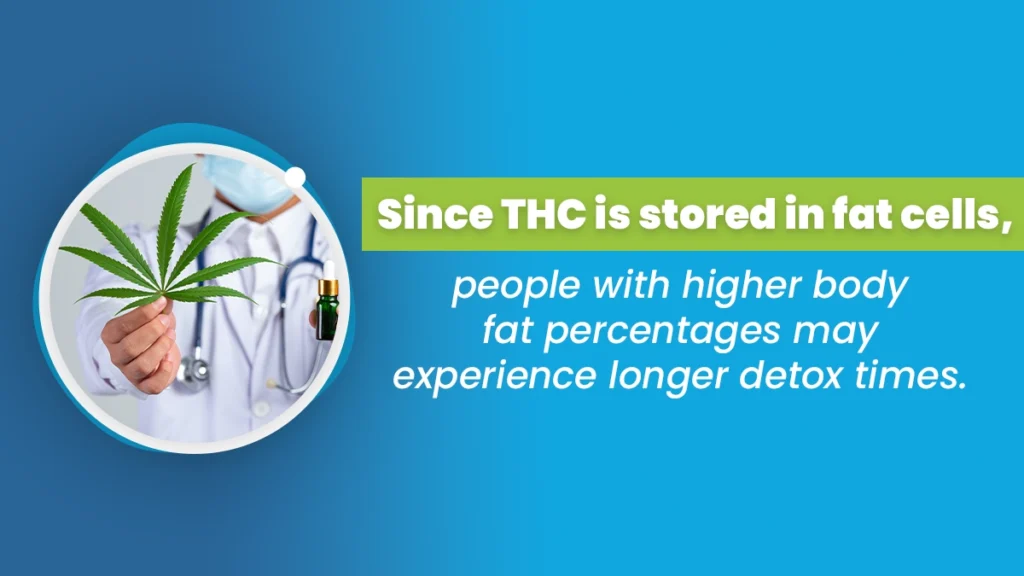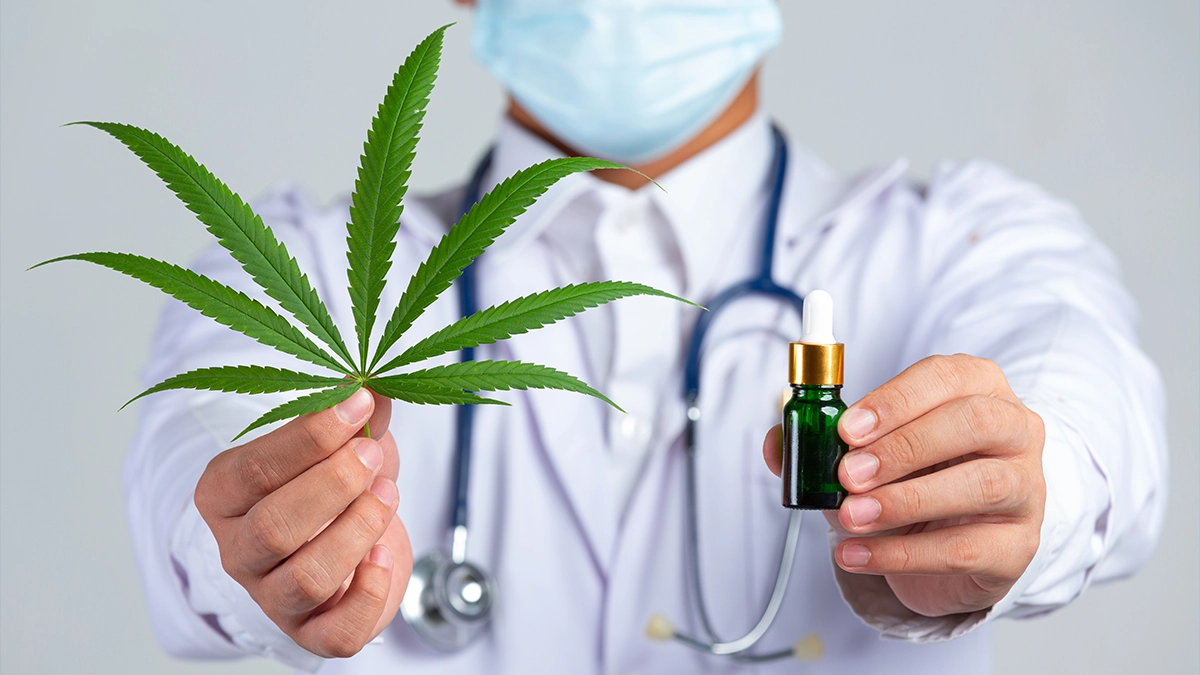Weed detox is a vital step for many people seeking freedom from addiction. It helps the body clear THC, which is the active chemical in marijuana. This process is essential for busting the physical and mental dependence on the substance. Many people may experience withdrawal symptoms during detox, such as irritability or trouble sleeping. However, this is a natural part of the process.
Professional addiction treatment facilities provide safe environments and offer medical care and mental health support. These services are vital for easing symptoms and guiding people toward long-term recovery. In this article, we will learn about detox, its challenges, and the support available to overcome them.
Key Takeaways
People seek weed detox to break their reliance on marijuana and improve mental clarity and health. Here’s what you need to know:
- Various detox methods exist, allowing individuals to choose based on their needs.
- Drug tests come in multiple forms, each with its level of accuracy.
- Maintaining long-term success requires focus and dedication with the help of medical professionals.
The Haven Detox-New England offers comprehensive care and effective recovery from substance use. Call us at (844) 933-4145 for more information.

What Is Weed Detox
Weed detox refers to the process of removing marijuana from the body. It is an essential step for people seeking mental clarity and health improvement. Detoxing helps cleanse the body of THC, the main compound in marijuana. Detox programs offer vital support through health care providers and treatment facilities to help individuals maintain balance and mental well-being.
Why People Consider Weed Detox
People consider weed detox when they want to stop relying on marijuana. It helps them clear their minds and bodies, offering a fresh start toward healthier living. Detox is also essential for anyone preparing for treatment at an addiction center.
Symptoms During Weed Detox
Weed detox comes with various symptoms as the body adjusts to the absence of THC. While the experience varies, some common symptoms can affect the mind and body.
Common Withdrawal Symptoms
When detoxing from weed, many people face challenges like irritability, sleep issues, and changes in appetite. Irritability is a common symptom during detox, often paired with feelings of anxiety.
Difficulty sleeping is another common challenge. THC can affect sleep patterns, and detoxing from marijuana may lead to insomnia. Changes in appetite are also a sign of detox. Some people may feel less hungry, while others could experience cravings.
Managing Withdrawal Symptoms
Managing withdrawal symptoms is essential for a successful weed detox. Having a potent support system can make detox more manageable. Family, friends, or professionals at addiction treatment facilities provide the vital encouragement and care people need.
Mindfulness practices like meditation and relaxation techniques are valuable for managing detox symptoms. Breathing exercises, yoga, and meditation help calm the mind and reduce irritability and anxiety.
Methods Of Weed Detox
There are different ways to approach weed detox, ranging from natural methods to professional programs. Choosing the suitable method can depend on personal preferences and health needs.
Natural Detox Methods
Natural detox methods focus on supporting the body’s ability to eliminate THC without any artificial products. Drinking plenty of water is vital for natural detox. Hydration helps the body flush out toxins, including THC. Exercise is another essential part of natural detox. Regular exercise, such as walking or light cardio, helps speed up the elimination of THC from the body.
Healthy eating is also essential during detox. Nutrient-rich foods like fruits and vegetables give the body the necessary vitamins and minerals to recover. A balanced diet supports energy levels and helps people feel better during detox.
Commercial Detox Products
Some people choose to use commercial detox products, which are designed to help speed up the elimination of THC. Detox drinks are designed to flush THC out of the body. These drinks often contain ingredients that promote kidney function and help the body eliminate toxins through urine. Detox pills are another option.
Detox kits often combine drinks, pills, and other products designed to cleanse the body of THC. These kits are popular among people looking for a more comprehensive approach to detox. They offer multiple methods to support the body in eliminating marijuana.
Professional Detox Programs
Professional detox programs offer medical supervision and structured environments, which can be important for people seeking a more controlled detox process. Inpatient detox centers provide 24/7 care in a safe, supervised environment. People stay at the center during detox, receiving medical care and support to manage withdrawal symptoms.
Outpatient programs allow people to detox while living at home, supporting them through regular visits, counseling, and medical supervision. Outpatient programs provide flexibility while still offering essential care for a successful detox.
Duration Of Weed Detox
The duration of weed detox can vary widely based on several factors. The body’s elimination of THC depends on individual traits and lifestyle habits.
Factors Influencing Detox Duration
Several factors affect how long detox will take. Frequent or long-term marijuana use can lengthen the detox process. THC builds up in the body over time, and those with higher use may take longer to detox.
A person’s metabolism plays a vital role in detox. Those with faster metabolisms eliminate THC more quickly. Factors like age, activity level, and general health can influence the speed at which the body processes and removes toxins.
Since THC is stored in fat cells, people with higher body fat percentages may experience longer detox times. The body gradually releases THC from fat cells, making detox a slower process for those with more body fat.
Typical Time Frames For Detox
For most people, weed detox can take anywhere from a few days to several weeks. Light users may detox in just a few days, while heavy users may need weeks to fully clear THC from their system. The time frame depends on personal habits and biological factors.
Testing And Verification
After detoxing, many people undergo drug testing to verify that THC is no longer present in their system. Drug tests come in various forms, each with its own level of accuracy.
Types Of Drug Tests
Several types of drug tests can detect THC. Urine tests are the most common form of drug testing. They can detect THC for up to 30 days after use, depending on a person’s body and frequency of use.
Blood tests are less common but more accurate. THC stays in the blood for a shorter time, usually up to a week. Blood tests are often used in medical settings where more detailed results are needed.
Hair tests can detect THC use for up to 90 days. This type of testing is used less frequently but provides a long-term view of substance use. Hair tests are often required for specific jobs or legal situations.
How To Pass A Drug Test After Detox
To pass a drug test after detox, it’s essential to give the body enough time to eliminate all traces of THC. Staying hydrated, eating well, and exercising regularly can support detox and increase the chances of passing the test.
Potential Risks And Challenges Of Weed Detox
Weed detox is not without its challenges. While it can offer a fresh start, people may face physical and psychological hurdles.
Physical Risks
Some physical risks during detox include nausea, headaches, and fatigue. These symptoms are temporary but can make the detox process uncomfortable. Seeking medical supervision can help manage these risks.
Psychological Challenges
Psychological challenges, such as mood swings or increased anxiety, are also common during weed detox. These mental health challenges are necessary to address through counseling or support groups. Managing these challenges is vital for long-term success.
Overcoming Cravings
Cravings for marijuana can be intense during detox. People may feel the urge to use it again to relieve discomfort. Developing coping strategies and relying on support systems can help overcome these cravings.
Tips For A Successful Weed Detox
A successful weed detox requires planning and dedication. Following these tips can help ease the process and improve the chances of long-term recovery.
Setting Realistic Goals
Setting realistic goals is essential for a successful detox. People should focus on small, manageable steps that lead to long-term success. Achieving these goals builds confidence and keeps people motivated throughout the detox process.
Keeping A Detox Diary
Keeping a detox diary helps people track their progress. Writing down daily experiences, feelings, and changes can provide valuable insight. This practice lets people see how far they’ve come and keeps them focused on their goals.
Seeking Support
Seeking support from others is vital during detox. Whether from friends, family, or professionals, having a support system makes the process smoother. Support systems provide encouragement and accountability, essential for a successful detox.
Post-Detox: Maintaining A Weed-Free Lifestyle
Once detox is complete, it’s essential to build new habits that support a weed-free lifestyle. Maintaining long-term success requires focus and dedication with the help of medical professionals.
Building Healthy Habits
Building healthy habits after detox is vital for long-term success. Regular exercise, a balanced diet, and proper sleep help people stay on track. Healthy routines replace old habits and offer positive alternatives.
Avoiding Triggers
Avoiding triggers that can lead to marijuana use is also essential to mitigate risks. People should identify and avoid situations, environments, or people that may encourage substance use. It helps reduce the temptation to relapse.
Joining Support Groups
Joining support groups offers a space for people to share experiences and receive encouragement. Support groups also provide accountability and a sense of community, which can help people stay motivated to maintain a weed-free lifestyle.
Frequently Asked Questions (FAQ)
How long does anxiety last after quitting weed?
The duration of anxiety after quitting cannabis varies for each individual. For many, anxiety may begin to subside within a few days to a few weeks as the body adjusts to the absence of the substance. However, some people may experience lingering anxiety for several weeks or even months.
The effects of marijuana withdrawal, including intense withdrawal symptoms, often begin within the first few days. Marijuana detox is vital for clearing the body of cannabis metabolites. Healthcare professionals recommend medical detox to manage withdrawal symptoms.
Physical activity and professional help can reduce side effects and improve mental health against anxiety during this period. According to the National Institute on Drug Abuse, cannabis use disorder and marijuana addiction require a treatment plan. Consult doctors for guidance, as individual needs vary. Avoid illegal drug use and seek professional care.
What should you eat when you withdraw from weed?
When withdrawing from weed, it’s important to focus on foods that support detoxification, mood stability, and overall well-being. Hydration is key, so drink plenty of water and herbal teas to help flush out toxins. Eat nutrient-dense foods like fresh fruits and vegetables, which are rich in vitamins, minerals, and antioxidants.
Whole grains, lean proteins, and healthy fats (like those from avocados and nuts) can help stabilize mood and energy levels. Foods high in magnesium, such as leafy greens, bananas, and dark chocolate, may reduce anxiety and muscle tension. Avoid excessive sugar, caffeine, and processed foods, as these can exacerbate mood swings and cravings. Small, balanced meals throughout the day can help regulate blood sugar and improve withdrawal symptoms.
Personalized Support At The Haven Detox-New England
At The Haven Detox-New England, we integrate medical care with wellness practices to ensure a comprehensive approach to addiction recovery.
Transform your life with our detox program, designed to safely cleanse your body from harmful toxins. Our residential program provides a serene environment, allowing you to focus on healing without distractions.
With our specialized mental health treatment, we address underlying issues while guiding you toward lasting recovery. Additionally, our comprehensive services integrate holistic therapies and personalized support to ensure a well-rounded approach to your journey. So, take the first step to reclaim your well-being. Call us at (844) 933-4145 and begin your path to recovery today.
Verify Insurance
Let’s get you or a loved one help with a few simple steps.
-
Medical Detox




